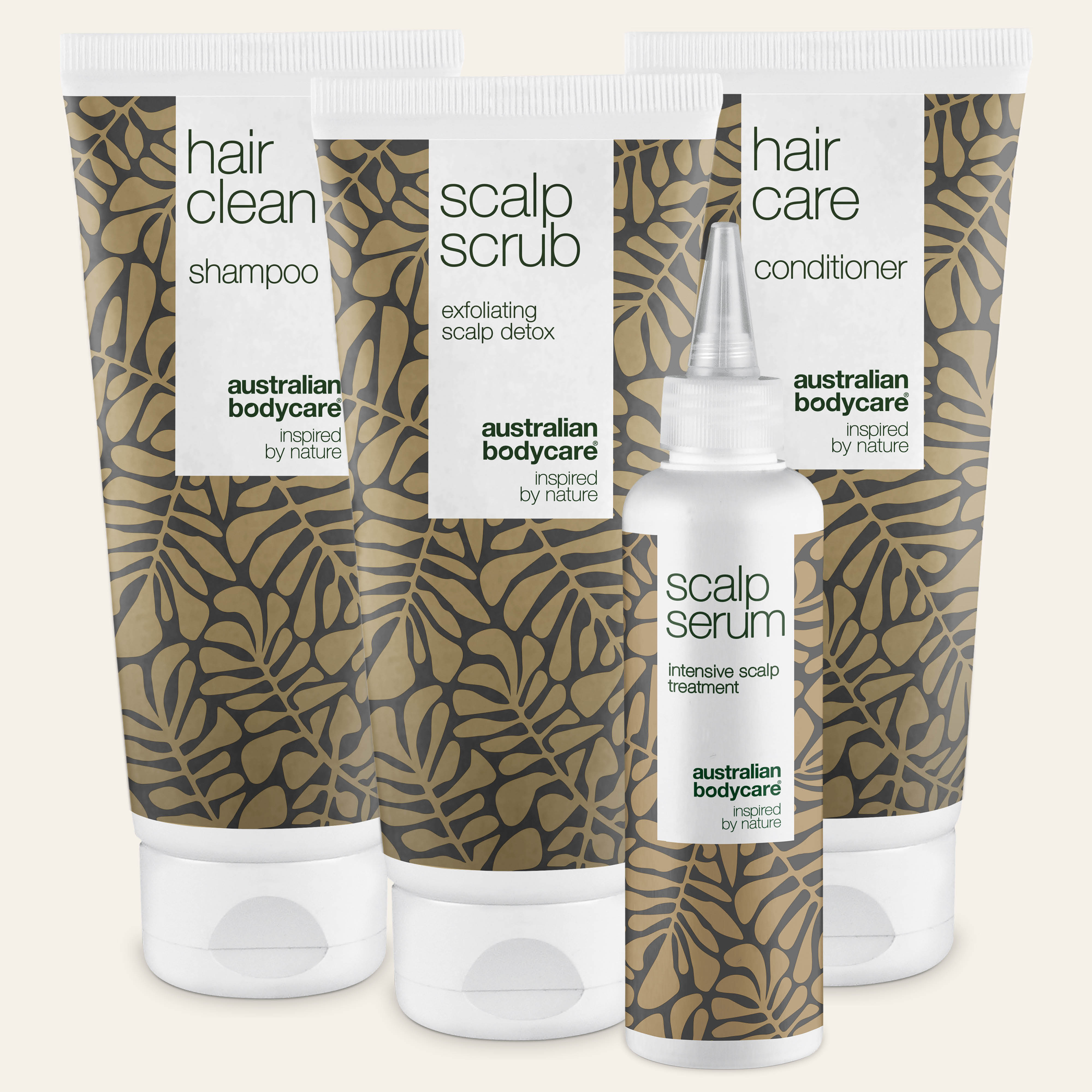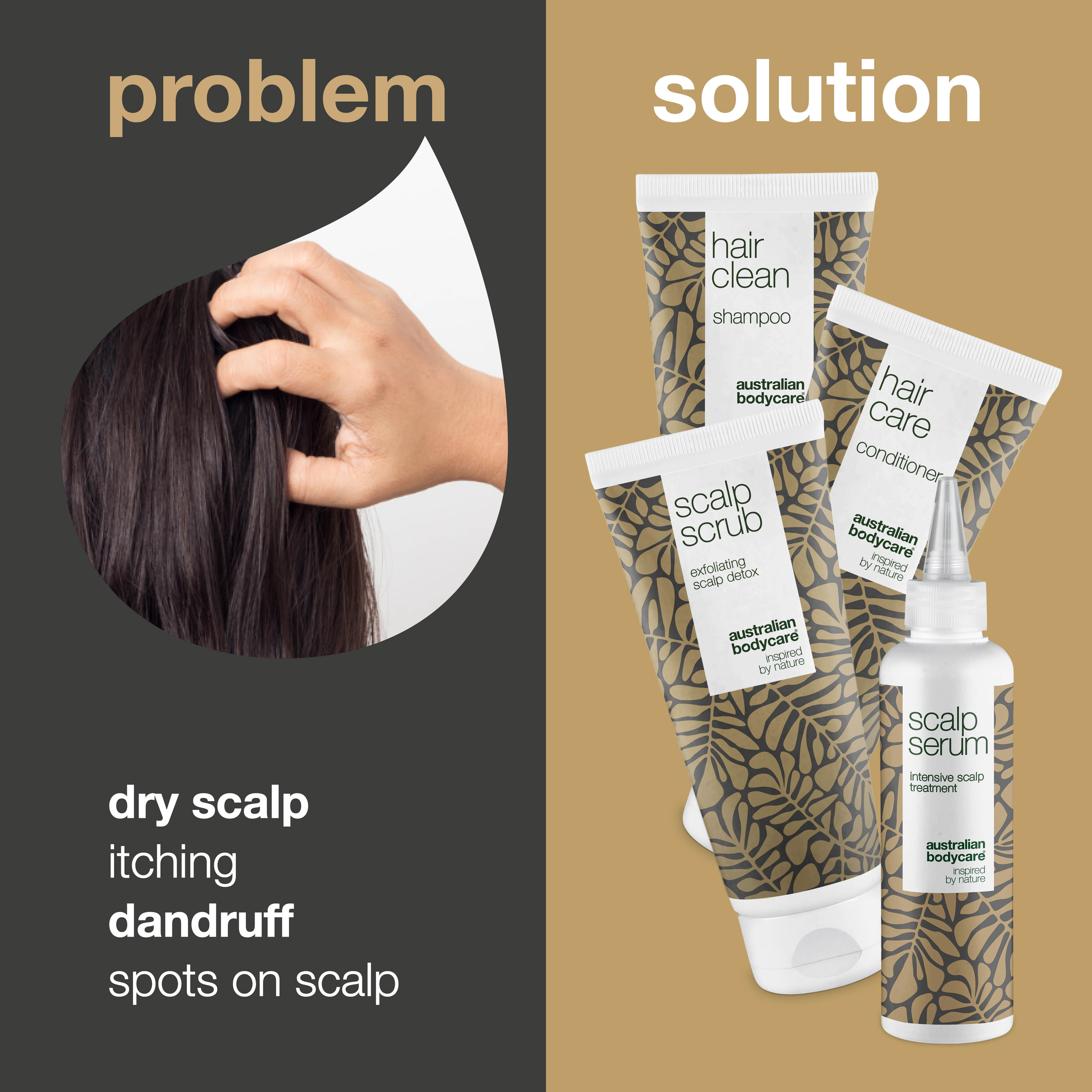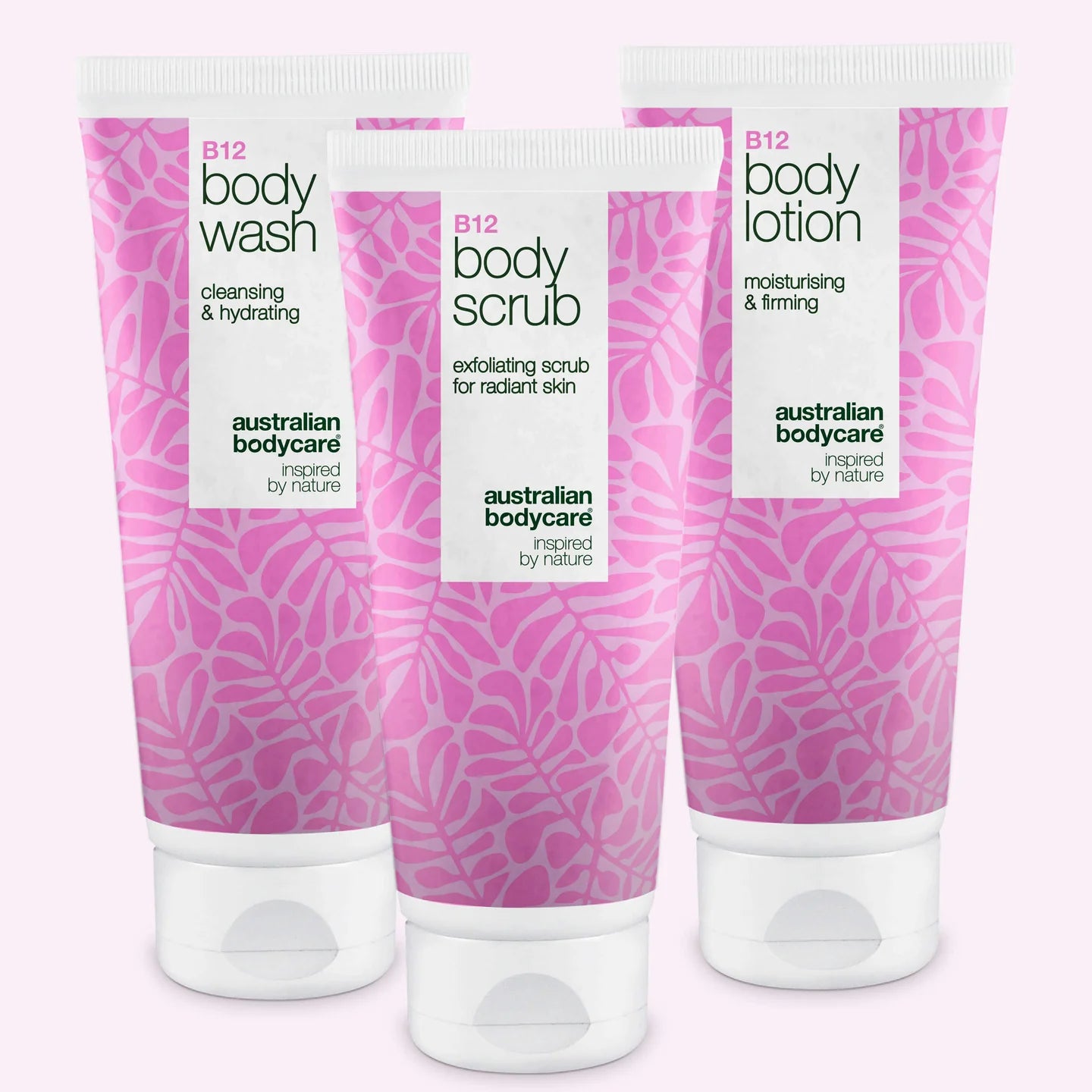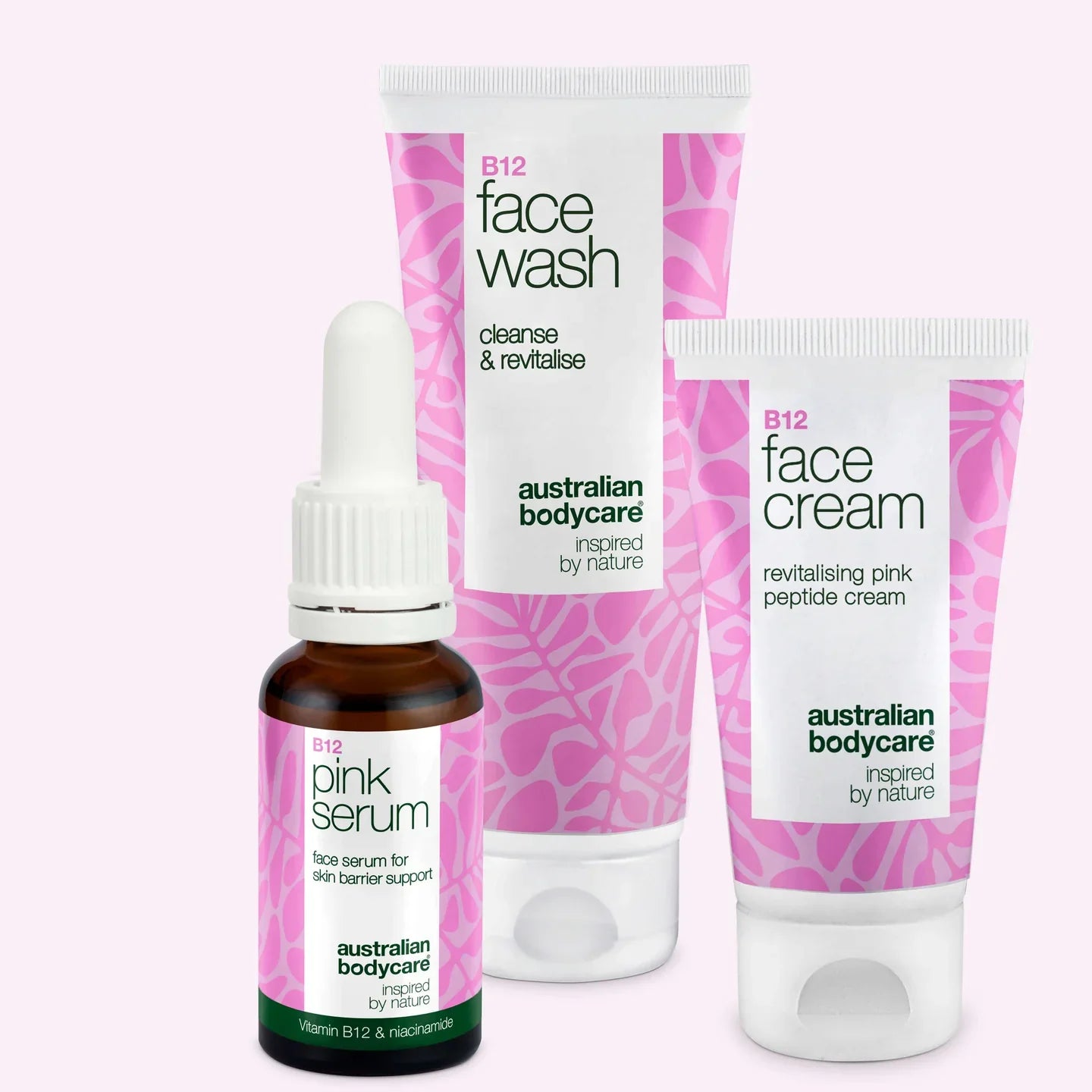What causes dandruff?
Table of contents
Why do you get dandruff on the scalp?
Dandruff is annoying and bothersome, but fortunately it is completely harmless. In the vast majority of cases, dandruff is caused by an overgrowth of the yeast fungus Pityrosporum Ovale. This fungus is found on the scalp of all adults, just as we have several other fungi on our bodies. This is all perfectly normal. It is only when there is an overgrowth of the fungus that it turns into the troublesome dandruff.
Also read How to remove dandruff
Video: How to get rid of dry and itchy scalp
Inbalance in the body : weakened immune system or hormonal changes
Normally, the body regulates itself to prevent overgrowth of the various fungal spores. However, when this sometimes happens, it is due to an imbalance in the body or a weakened immune system. It can also happen as a result of penicillin treatment, hormonal changes or other factors. For example, it is not uncommon for teenagers to experience more dandruff than usual because of hormonal changes in the body during puberty.
High sebum production provides a good breeding ground for increased fungal growth. And a scalp with dandruff typically has a high production of sebum, whose purpose is to naturally moisturise and protect our skin from drying out.
When sebum production is higher than normal, it is typically due to an increased production of hormones. This may explain the tendency for men to develop dandruff more often than women and for teenagers to develop dandruff more often than others. The production of male sex hormone stimulates the production of sebum.
Dandruff and diseases
So, in most cases, there are quite harmless reasons why you develop dandruff. However, in some cases there may be other causes. Dandruff can be caused by a skin condition called seborrhoeic eczema (seborrhoeic dermatitis), which causes a lot of dandruff. Often you will not only have dandruff on your scalp, but also dandruff, redness and itching on your face, ears, eyebrows and perhaps on your upper body.
Whitish dandruff and itching on the scalp can also be caused by the skin disease psoriasis. Ringworm, a fungal infection, can also cause dandruff. Finally, there are various other diseases that can cause dandruff. These include diseases such as Parkinson's, stroke and HIV/AIDS. When the immune system is weakened due to illness, it is easier to contract various conditions, such as dandruff in the hair.
Oily or dry scalp
When you have dandruff, you may also have a dry scalp that lacks oil and sebum. But you can also have dandruff and an oily scalp that has too much fat and sebum. So dandruff can occur in both types of scalp. In both cases, the scalp is irritated, which typically causes itching of the scalp.
An irritated scalp can be caused simply by, for example, the skin not getting enough air. If you wear a hat all day, you may actually be laying the groundwork for an irritated scalp with dandruff and itching.
ALSO READ: Shampoo for oily hair
Who can get dandruff?
Dandruff is caused by the shedding of dead skin cells from the scalp. Every day we all shed lots of dead skin cells, but to a lesser extent. When it gets so much that it is clearly visible, it is what we call dandruff.
All people can get dandruff, both men and women. However, men seem to get dandruff more often than women.
Dandruff appears at the earliest during puberty. However, very young children and babies can get what looks like dandruff on the scalp. This is not dandruff, but another type of dandruff eczema.
How do you remove dandruff?
Dandruff is an annoying skin condition, but luckily there are many ways to both treat and prevent dandruff if you use the right dandruff products.
In most cases, you can treat dandruff yourself with a good dandruff shampoo containing ingredients that fight fungi and bacteria. It is important that the shampoo is mild and skin-friendly so that it does not dry out and irritate the hair and scalp. Hair Clean Shampoo with natural tea tree oil is a good choice for a shampoo that washes, cares and at the same time prevents and treats dandruff.
Scalp treatment and natural oils
If you prefer to use pure natural remedies, there are various options available. Aloe vera and tea tree oil, for example, are known to be effective against itching and bacteria. Vinegar and coconut oil are other natural remedies that some believe to be effective against dandruff.
Luckily, there are hair products that already contain natural ingredients, so you don't have to make your own.
A good scalp serum or scalp treatment can be a good complement to an anti-dandruff shampoo. You can easily find one with natural ingredients if you prefer. Scalp Serum is a good example of a treatment that is gentle and nourishing, yet effective against dandruff and itchy scalp.
> Products for irritated and dry scalp
When all else fails
Most people can get rid of their dandruff if they use a good dandruff shampoo that effectively fights fungi and bacteria. For particularly severe cases of dandruff, you may need a dandruff shampoo containing tar, sulphur or zinc. You need to get this from a pharmacy.
If that doesn't work either, you'll need to visit your doctor to get a prescription for a stronger medicated antifungal shampoo, ointment or tablets. But it rarely comes to that - most people can manage the problem with a good anti-dandruff shampoo, possibly accompanied by an anti-dandruff hair treatment.
How can you prevent dandruff?
The hair and scalp benefit from light and air, so if you are prone to dandruff, think about how much you wear a beanie and a cycle helmet. Wearing a hat on your head all day is not good for your scalp and hair. Moderate amounts of sun are good for the skin and therefore also for the scalp.
When using styling products, make sure they don't go all the way down to the scalp. They should only be used on the hair, otherwise you risk greasing and irritating the scalp unnecessarily.
Take care of your scalp and yourself. Stress can affect your hair and skin, and therefore your scalp. Choose a good shampoo that suits your scalp. Take your time when washing your hair to massage the shampoo into your scalp - and make sure you rinse it all out again. If you have problems with dandruff, use a scalp treatment that deeply moisturises and cleanses, preferably daily. Once you've got your flaky scalp under control again, you can use it as a preventative treatment from time to time.









